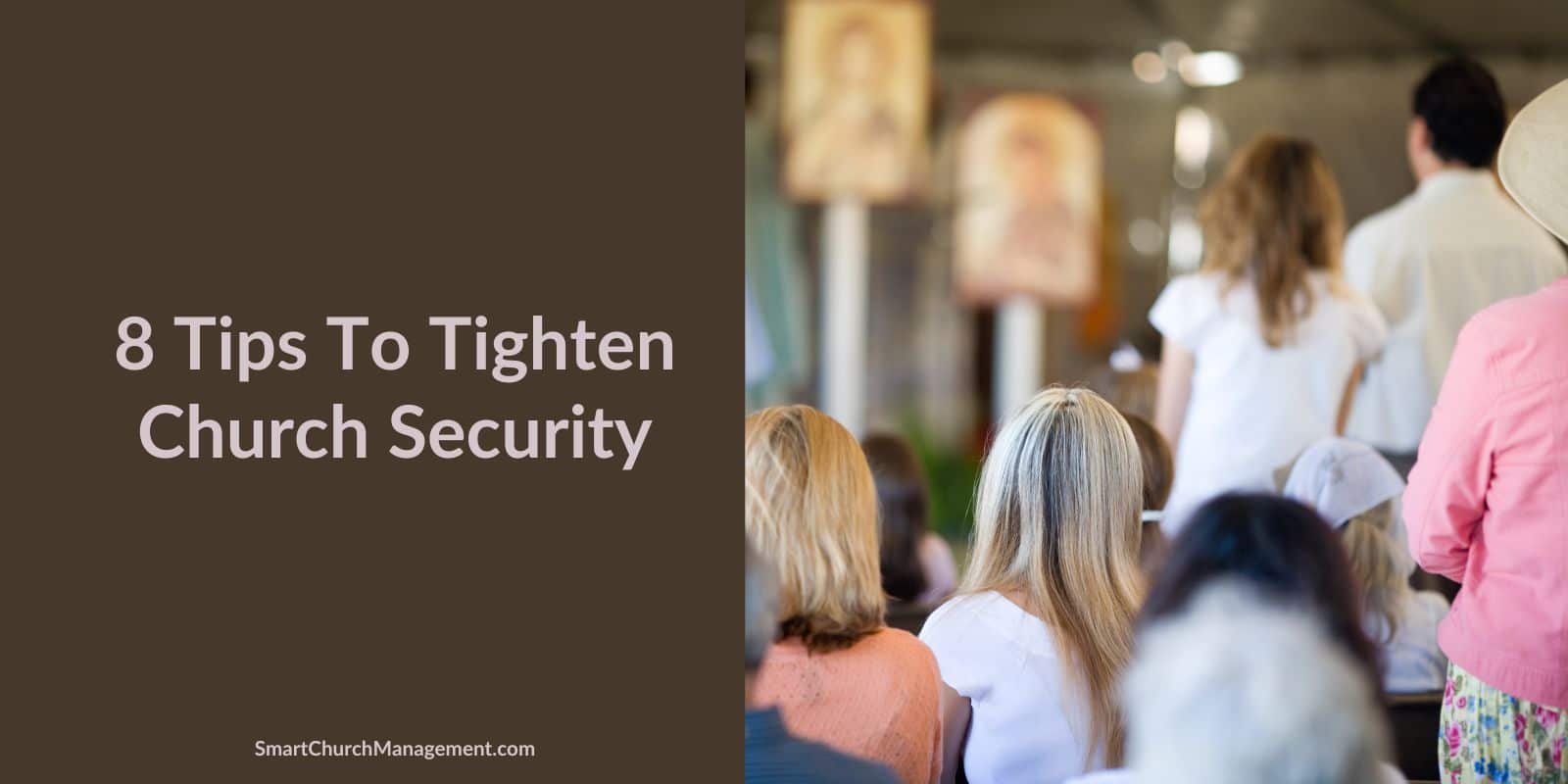Estimated reading time: 6 minutes
When I was young, I remember church being a place where the door was always open, and visitors were welcome any time of the day or night.
It was a safe refuge for those who just needed some time in prayer and reflection. Church security was unheard of.
Times Have Changed
That trend has changed over the last couple of decades. Most churches now have scheduled times when their doors are open and the building is available for public prayer.
However, the most recent acts of violence toward pastors and church members have brought about a new focus on church security.
It is estimated that there is an average of 480 incidents of serious violence at places of worship each year. These acts result in an average of 46 deaths and 218 serious injuries annually.
The most disturbing thing about these numbers is many of these violent acts were between people who had some relationship with the church and/or its members/employees.
Most of these attacks happened when the church was not in service and church employees and volunteers let their guards down.
The alarming statistics warrant a closer look at how churches safeguard their members, volunteers, and employees.
“An ounce of prevention is worth a pound of cure.”
Ben Franklin
8 Tips To Tighten Church Security
1. Have a Church Security Plan
Planning is one of the most important first steps to tighten church security.
This involves writing a plan that answers the question “What should we do if…..” in any given situation.
For instance, ask your team what should be done if they noticed someone approaching the church with a firearm. Or what would the team do if there was a domestic dispute over a child in children’s ministry, or what would the team do if someone approached the pulpit?
Go through an exercise and ask any number of possible scenarios, and think through the appropriate response for your church and its culture.
This plan should be developed by key church leaders and added to a policy and procedure manual that should be updated regularly.
Use your local law enforcement to consult and advise on tightening campus security.
2. Develop A Security Team
Develop a team of volunteers who focus solely on the security and safety of your church.
Identify members with military or law enforcement background and recruit them to be part of a volunteer security team.
Schedule this team to be available anytime there are church services, events, or people on campus.
Provide them with security training so they can respond appropriately in the event of a threatening incident.
3. Solicit Help From Members
Take advantage of the eyes and ears of church members. Recruit them to report suspect or unusual behavior and help them understand their role in church safety.
Train employees and volunteers about the church security plan.

Employees and volunteers should understand this plan so they will know what to do in any number of situations that may threaten the church or its members.
Part of this training should include explaining why a plan has been created and how members can partner with church leaders to help ensure church safety.
4. Controlled Hours of Operation
It is much easier to provide a safe environment when there are controlled hours of operation.
Designate public hours of operation for church buildings and ensure someone is in the building anytime the doors are unlocked.
For instance, some churches open the sanctuary to members for daily prayer from 6:00-8:00 am.
There is safety in numbers, so try to avoid putting employees or volunteers in situations where they are alone in an empty building.
5. Transition To Key Card Entrances
Many people use church campus buildings. This reality makes it difficult to control who enters a building or has keys to the building.
Volunteers sometimes end up with building keys and may leave and forget to lock the door behind them.
Invest in secure entrances by installing key card entrances that lock automatically when closing.
This simple step will eliminate the possibility of someone accidentally leaving a door unlocked.
Change door locks to a card key with an automatic lock function.
6. Create Lock-down Procedures
Volunteers and employees should know exactly what to do in a threatening situation. This is why lock-down procedures are so important.
Lock-down procedures will determine the best approach to protecting church members in the event of a threatening or unsafe situation.
Develop lock-down procedures, particularly in children’s areas, that articulate the exact steps a volunteer should take to safeguard their surroundings.
For instance, a procedure may instruct volunteers to lock the doors and instruct children to stay away from windows and doors.
A similar approach may be used in the main sanctuary. Your building and campus layout will dictate the appropriate procedure to follow.
7. Communicate With Members
Keep members in the loop.
Have a church communication plan to inform church members of new security measures.
Let them know what the church is doing to keep members safe while on campus.
Make these communications public so that anyone sitting in church who intends to do harm will be made aware that lots of eyes are watching them.
8. Prayer
This, of course, is the most important step.
There is a lot of power in prayer, so be diligent in praying for church safety. Use your prayer teams to cover church safety.
“The suspect walked into the church in a calm fashion,” said Cpl. Kay Lester, a Fulton County police spokeswoman. “He walked in, opened fire, and left as calmly as he came.”
Be Prepared But Not Fearful
The world has changed in the past few decades. This unfortunate reality makes it important to think strategically about church safety.
For God has not given us a spirit of fear, but of power and of love and of a sound mind.
2 Timothy 1:7
The Bible says we should not have a spirit of fear, but we should use common sense and wisdom in our approach and planning for the unexpected.
Don’t walk in fear, but create a plan so you can take comfort in knowing your team will know exactly what to do in every situation.
Now might be a good time to gather your team to take steps to keep your church safe.
Learn more tips for managing your church by enrolling in our Fundamentals of Church Administration Course.



